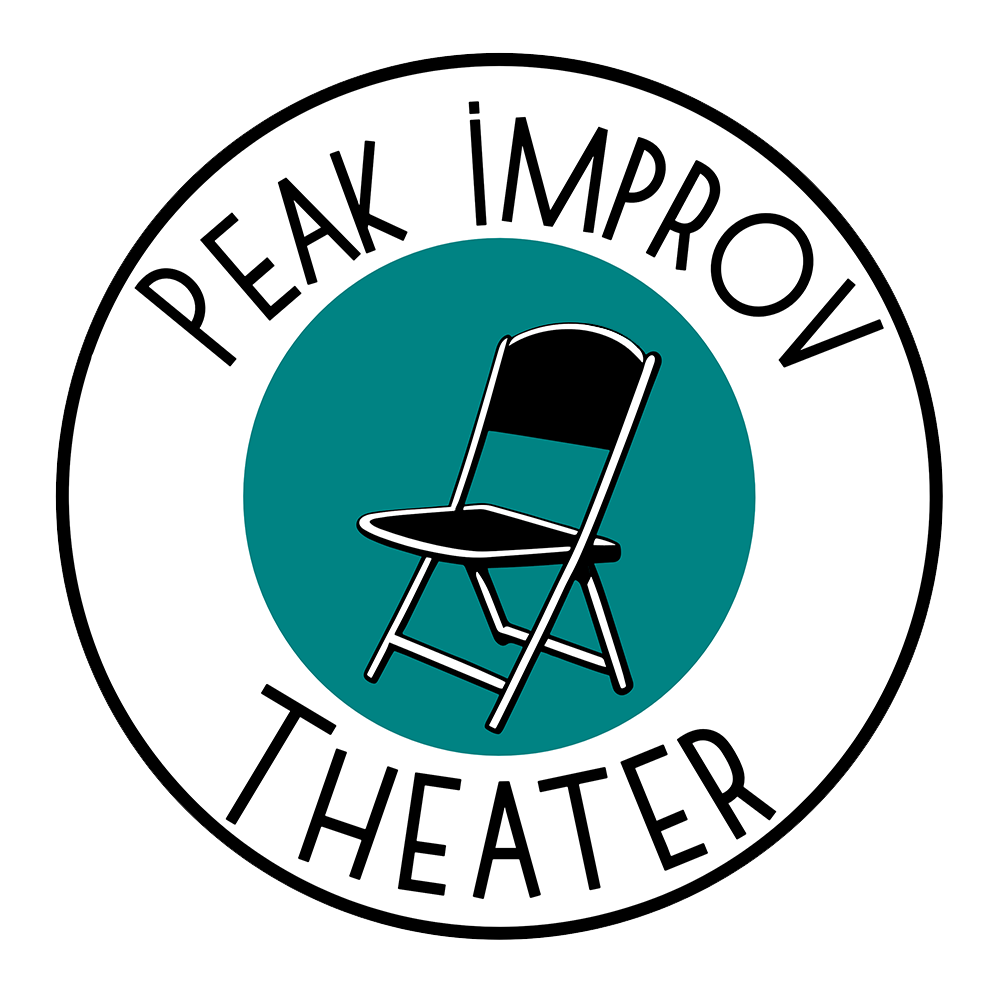Matt Watson on Self-Trust, Panic Attacks, and Finding Belonging
When Matt Watson signed up for his first class at Peak Improv Theater, he was looking for a way to manage anxiety and sharpen his comedy skills. What he found was so much more—a community that welcomed him, supported him, and helped him grow both on and off the stage. In this PiT Profile, Matt shares how improv transformed his confidence, sparked new creative adventures, and reminded him that sometimes, the best moments come when you stop second-guessing and just say yes.
Matt is a student and performer at Peak Improv Theater. He first got involved with improv to help his anxiety disorder and to learn proper improv technique in order to improve his own comedy exploits. His favorite thing about PiT is how the people involved have created an inclusive, accessible and supportive environment to learn and perform comedy in. When not doing improv, he produces comedy podcasts with his wife and friends, watches Twin Peaks on repeat, and enjoys the Colorado outdoors.
In this shortened version of our PIT Profile interview, Matt Watson opens up about managing anxiety, building confidence, and discovering a sense of belonging through improv.
The following is a condensed version of our full conversation, filled with honest reflections, personal breakthroughs, and a few laughs along the way. To watch the entire interview, head to Peak Improv Theater’s YouTube channel.
PiT: What made you sign up for your first class at the PiT?
Matt: Initially it was addressing my anxiety disorder. It felt like it would be good to learn how to be more in the moment, be more present, and grounded in what's happening now, as opposed to what’s happening in the future—to lessen worrying.
PiT: What was your biggest fear walking into day one?
Matt: My biggest fear was having absolutely nothing to say when it's my turn to say something. And sometimes in those first classes, nothing came to me, but it that didn't matter, because it was a very encouraging environment, and slowly over the weeks, I had more and more things to say.
PiT: How did that fear change over the course of the class?
Matt: Fear changed in a in a pretty big way over the course of the the eight weeks. Just understanding that it's okay, because the people around you have you, they're they're supporting you. Your scene partners will have something to say, and if your scene partners don't have anything to say, something will develop out of nothing. That's one of the things I've learned. It's definitely not a problem now. Now I say too much.
PiT: What was something you discovered about yourself during this class?
Matt: I’m more confident than I think I am. I’ve spent the majority of my life second guessing everything. But then, when you are in an environment and a situation like improv, where you don't really get a chance to second guess, you just have to roll with something. It's definitely given me more confidence in my own ideas.
PiT: What surprised you most about learning improv?
Matt: Oh, this is going to be bad to say. The thing that surprised me most was just how “theater” it was. At the very beginning, I was coming from a background of doing a bit of sketch comedy, and comedy writing, and making comedy podcasts. So I thought, “Oh, this is gonna be comedy space where everyone's riffing.” But there's a huge percentage of pretending to be an animal, or getting in the mind of a certain profession or something, and having the point of view of that experience. So the biggest surprise was definitely, oh yeah, I need to engage my theater brain a bit here as well, which I eventually did, but it took a bit of time.
PiT: How do you mentally prepare when you're going on stage?
Matt: Panic.
But it is getting easier and easier.
I mean, to tell a story about how great the folks at the PiT are, I'd never been on stage before, like, at all. And so this kind of triggered a little something, and I had a panic attack, genuinely. But Casey and Meggan were right there for me, and took care of me and got me to a safe place, and let me know that everything was okay. And that made me want to come back, because there have been so many situations in life that I've been in where I've had a panic attack, and then people have not really known how to respond. Some places wanted very little to do with me after that. But it was how encouraging Meggan and Casey and everyone were that I was just like, I think these are my people. I think they've got me. And then that trust just kind of traded back and forth and and now when I go on stage, I don't feel feelings of panic. I'm still excited, I've still got a lot of nervous energy, but I don't feel that same way.
PiT: What do you wish every new student knew?
Matt: I suppose that even though there are rules in place for what makes good improv, there's no such thing as failure. There's no failing in improv.
Matt’s story is a reminder that growth doesn’t happen in a vacuum—it happens when we show up, take risks, and trust the people around us. To hear more about his journey, including how podcasting and panic attacks shaped his time at PIT, watch the full interview on our YouTube channel.

